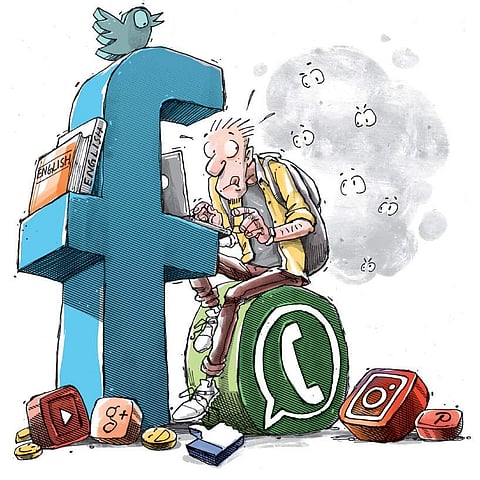

Last summer, A Suganya* told her parents that she wanted to go to Paris for her holidays. The 15-year-old insisted that she wanted to see the Eiffel Tower and the painting of Mona Lisa at the Louvre Museum.
Her parents were taken aback as Suganya had told them only a few months ago that she wanted to visit Jaipur. They had booked the entire trip and could not cancel it. When they tried to explain to her about the lack of funds to go on a trip to Paris, Suganya was visibly upset and sulked for a few days.
“I was quite shocked as only a few weeks before that she was so excited about going to Jaipur,” her mother said. “As a family, we have not been on too many vacations and had never been up north.
So when she suggested it, we thought it would be a fun trip to do as a family. Jaipur is feasible, Paris is not a trip that a middle-class family like mine can afford to do. So we did end up going to Jaipur and we all had a great time.
But it was only when we got back that I asked Suganya why she wanted to go to Paris and she came out with the truth that she saw her best friend’s posts on Instagram. She saw how people were going gaga over it and she wanted the same to happen for her.”
Social media has become a huge source of validation for teens. And the constant pressure to live up to being a ‘woke’ and ‘lit’ person is eating away their mental health.
“There is constant pressure on everyone, especially teens who are at a very impressionable age, to look perfect,” said Mumbai-based cyberpsychologist Nirali Bhatia. “There is also immense pressure to keep sharing some achievement or the other. What teens don’t realise is that it is just a documentation of the best moments in someone’s life. This builds a different kind of pressure — the pressure to constantly have great Instagram-worthy moments all the time, which is not possible.”
One of the direct consequences of this constant urge to look perfect is body shaming. The Internet can be quite a cruel place when it comes to this as it provides people with the perceived veil of anonymity.
When it comes to teens, this can have a devastating effect on their self-esteem as they are already grappling with several emotional, physical and hormonal changes.
“I am very unhappy with the way I look,” said Priya Ram*, a 16-year-old. “I want to look like Alia Bhatt. I constantly look at my friends and feel like I am not good enough. Once, I posted a picture of myself in a skirt and so many of my classmates commented saying I was looking like a baby elephant and hippo. I immediately took it off and have stopped wearing skirts. I want to become thin fast so I can wear a skirt, put a picture up and see the same people like it. That is when I will feel satisfied.”
This is a dangerous precedent, experts say as it is pointing towards a kind of bullying that is alien to most teachers. This goes unnoticed as it transcends the realm of regular physical and verbal bullying in school and moves on to the murky cyberbullying arena.
“Body shaming can drive teens to extreme measures of dieting or self-harming tendencies, especially with ‘thin’ figures as being promoted constantly as the only acceptable size,” said Chennai-based counselling psychologist Sneha Hindocha.
The constant comparison that teens can now readily make with their peers is yet another problem.
“This comparison is a big issue as it can lead to jealousy,” said Nirali. “The problem with social media is that it is a push-medium. Earlier too, people shared good news with others but one was prepared for it because you would meet at a coffee shop or their home. Today, the problem is that you could be having a terrible day and you get on your phone and see that your friend is holidaying in some exotic place or that someone is looking great in a new dress. You are not in the frame of mind to take in that information positively and that can affect your mood and behaviour.”
Sneha conceded, saying that comparison can be one’s worst enemy online and that teens should understand that “Everything we see on social media must be consumed with more than a pinch of salt.” Parents play a crucial role in not only being a solid sounding board but also in helping teens to get the attention and validation that they need.
“Make sure that you are not comparing them to others or even to what your life was at that age,” said Nirali. “Parents must understand that the way you look at an online space and your child does, is different. Also, be a good listener. Don’t react but rather respond. Their problems, challenges, and way they perceive things is different so you need to remember that it is okay if your child makes a mistake. Do not react impulsively. By validating their presence and appearance in an offline world, you will be providing the best support.”
(*Names changed on request)